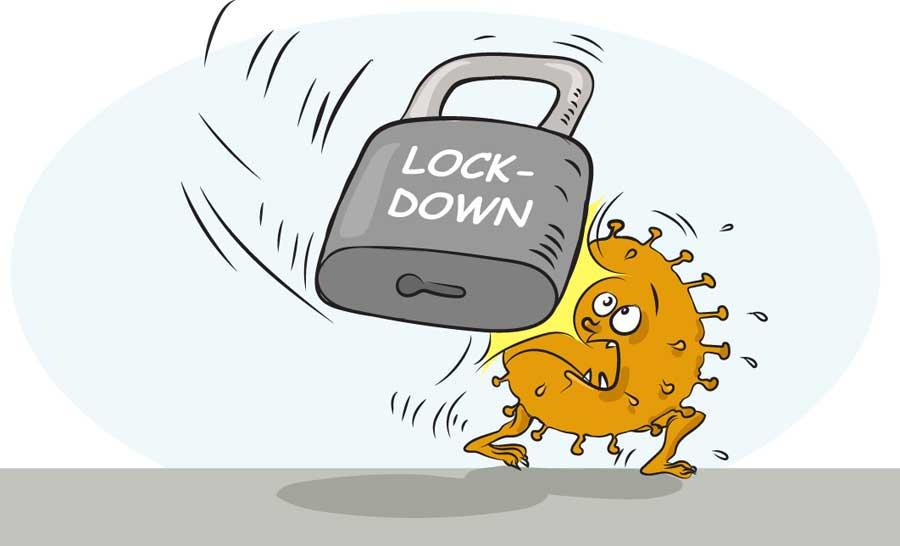23 Aug 2021 - {{hitsCtrl.values.hits}}

The number of persons, who have contracted the coronavirus/Covid-19 in the country by August 22, 2021 stands at 385,696, while the number of fatalities has risen to 7,183. According to the Reuters Covid-19 tracker, the number of Covid-related deaths in the country is at a peak: 180 and rising.
Covid-19 infections too are at their peak an average of 4,693 new infections reported each day. For weeks, if not for over a month, medical experts, including members of the governing party itself as well as members of political opposition have been demanding the government lockdown the country as a means of bringing the surging numbers under control.
The President and his men including those in uniform –all of whom have no medical knowledge - have insisted the situation continued to be manageable and saw no reason to lockdown the country even as the disease killed an average of around 180 persons daily.
Resultantly, health workers, doctors, nurses and minor staff were threatening trade union action as they felt unable to cope with rapidly increasing numbers of Covid-stricken patients.
It was at this stage, another non-medical body – the leadership of the Asgiriya and Malwatte Chapters - of the Buddhist clergy decided that for the good of the country, they had to intervene.
On August 19, the respected Prelates wrote an extremely respectful letter to the President pointing out the validity of the call for a lockdown, quoting experts in the medical field to back up their request and the President responded positively. The next day he announced a lockdown which will be in force until August 30.
However, what boggles the mind is that it took advice of a non-medical body to ultimately force the President’s hand.
During the first wave of the pandemic, Sri Lanka’s response earned national and international praise for its quick action to bring the corona virus under control. Unfortunately, the economic consequences of the lockdown during that time hit the poorest of the poor hardest. This was probably the reason for the President to decide against imposing a lockdown.
Today, with the Chief Prelates lending their support to the voices calling for a lockdown, it is not surprising the President was forced to give in.
The fact of the matter is that as the Central Bank has stated over 50% of the country’s workforce comprises of daily paid workers. The work stoppage – part and parcel of a lockdown - means, starvation is staring at these people.
The tea and rubber plantation workers continue to be among the poorest paid workers in the country today and they too are dependent on a daily wage. Yet, this body of workers, despite being responsible for bringing in the largest share of the foreign exchange our country depends on, will during this period be left penniless and forced into the hands of money lenders who charge exorbitant interest.
Owning nothing, but their labour to sell and monumental debts to pay off as a result of less days work per month, is it surprising we hear the sordid tales of estate-based Tamil children being sold into slavery to homes of the well-to-do. Even ministers of state make use of the poverty of these unfortunates to make the already luxurious lives they lead more extravagantly so.
The President, while travelling from his home to the presidential office along with his military convoy, could hardly help, but notice growing numbers of mothers with babies in-arms begging for alms along the city streets. Nor could he have failed to notice the numbers of beggars going from door-to-door berating the politicians who brought the country to this plight.
The avoidance of creating such misery among poorer sections of our population may have been the President’s goal and may have been the cause for his hesitancy to call for a lockdown.
However, that is speculation, what is important is whether the President’s decision was made because politics deemed it necessary, or whether the decision was made keeping the strategic interests and needs of the country’s people first.
28 Nov 2024 6 hours ago
28 Nov 2024 7 hours ago
28 Nov 2024 8 hours ago
28 Nov 2024 9 hours ago
28 Nov 2024 28 Nov 2024